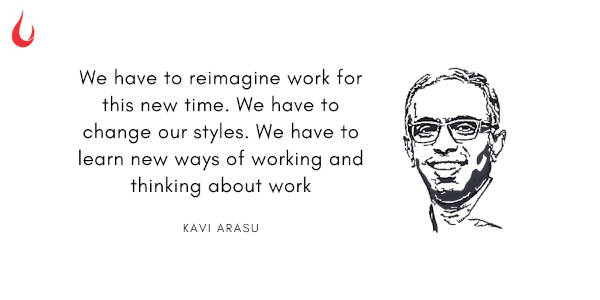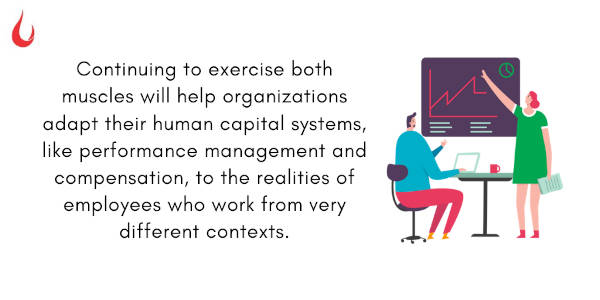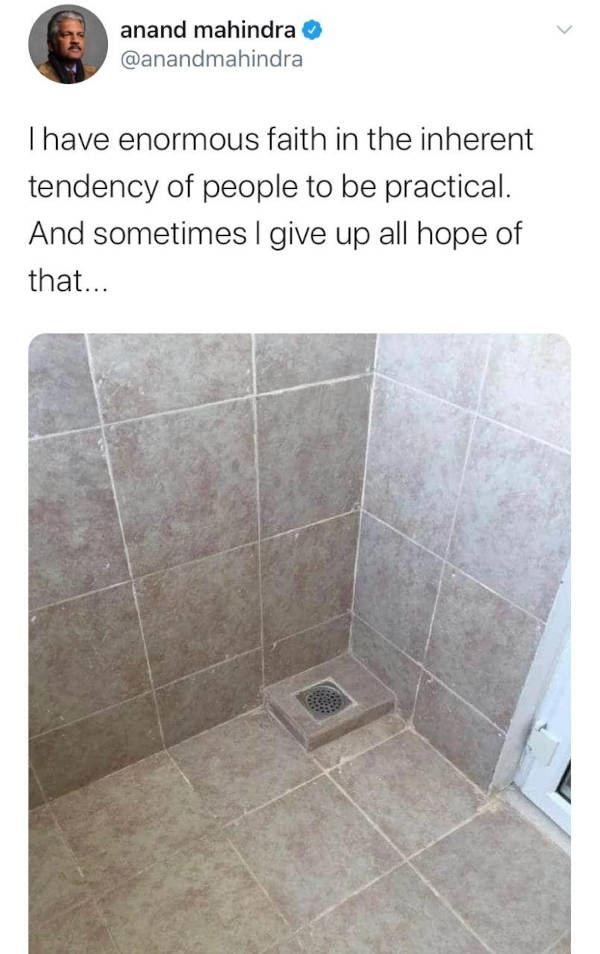[Image by Gerd Altmann from Pixabay]
Dear friend,
Matt Ridley, the author of several books on science, technology and business, recently wrote an article giving five reasons why he thinks the coronavirus nightmare may soon be over.
One, vaccine trials are promising.
Two, herd immunity may be achieved more easily than we first thought.
Three, with simple measures such as no handshakes, frequent hand washing, no large gatherings and so on, the virus will struggle to keep spreading in the community.
Four, we have more protective equipment and we have a better, if still imperfect, capacity to test, track and isolate cases.
Five, we now know better how to treat people who get seriously ill.
If we read closely into what Ridley says, the end of this nightmare will come with several conditions—including social distancing, work from home and living with serious restrictions.
In this issue, in the FF Recommends section, we are exploring some of the big questions around living and working in these dire times.
In this issue
- FF Recommends: Why you should take an audit of what you do
- Why you should build both WFH and WFO muscles
- Why having the right accessory is not enough
Have a lovely weekend.
FF Recommends: Reimagining work for the volatile times | Take Audit
None of us anticipated that the novel coronavirus would mess with our watches, clocks and even calendars. Our perception of time seems to have gone all haywire. Weekdays have merged into weekends just as how offices have taken over our homes. And many of us can see it impacting everyone’s physical, emotional, and of course, professional lives. So, at Founding Fuel, we had a conversation around this with Kavi Arasu, who has been helping out individuals and organizations in these kinds of situations.
We will explore these questions deeper in the coming days. Here’s an extract of the conversation that defines what the problem is, and offers some pointers on how we will go about it in the coming days.
Charles Assisi: Kavi, we're coming to the close of the week. And, there's this question, that's at the back of my mind, and I may sound rather silly to you, but for some reason, this has felt like an extremely long week. I really don't know why this has been like an extremely long week. There are some weeks that just go by. But for some reason, this week didn't seem to end. The other day, for instance, I was speaking to Sveta, she just mentioned that it's only Tuesday, and I was thinking it was already Thursday. That's when it occurred to me that good lord, yeah, it's only a Tuesday and we're still a long time away. It just seemed like never-ending and I still haven't been able to wrap my head around it. I thought I will place this on the table with you and others.

Kavi: “I’m not sure about the week being shorter or longer. But I for one, have been experiencing a lot of Oh My God, it's already August. Oh my god, it's already July. That kind of pace. And of course, it's relentless. And it's been hyperfast. The feeling of being tired at the end of the day is perpetual.
“A couple of weeks ago, I kind of sat back, thought about the whole thing and said, this is not going to continue or this can't continue this way for a long time. Earlier, we have had occasion to think of and reflect on this together as a team and what I stated back then as well was that we are going to be in this for a long haul.
“A number of organizations at that point in time said that when the first lockdown orders were issued, the first thought was ‘okay, we are going to be in it till the end of April, maybe April 14’, and then ‘the end of April’. Everybody was in a temporary coping mechanism mode. Everybody put in extra long hours because they knew that the end was April 14, then April 30. So, many of us thought that we will get back to our normal routines. And therefore there was a limited period for which we had to extend ourselves disproportionately and that it was bearable.
“But now with no end in sight, you're suddenly realizing that ‘I can't do this’. You can only cope for some time. You can't continuously cope and you can't make it your default. Therefore we are all feeling extra tired. We're all feeling very, very, very, very broken at the end of the day from an energy perspective.
“Therefore, from the very beginning, if you recall, we've been talking a lot, but we have to reimagine work for this new time. We have to change our styles. We have to learn new ways of working and thinking about work. And that is important. In the absence of that, we're going to have continuous problems like this.
“So we have to fundamentally step back and take a long hard look at all what we do and segregate what is not important, what is most important and what are things that we can do when we have slightly more bandwidth.
“The first thing I would say is, we need to step back and have an audit of all that we do. That may sound like an ominous task, but we can do it playfully—we should definitely take a step back and take an audit of all things that we did, and segregate it into the ‘must-do’. From that definition, I think there will be a lot of things that will come up as what are things that ‘we don't have to do’ but that we used to do because we were having some advantages in the earlier world.”
Here are three things that you can do help you in the audit
- Take breaks between video conferences. Think of it as the equivalent of the time you would have spent commuting from one place to another, or the time you would have spent in casual conversations.
- At the end of the day, check out your calendar, mobile phone and any other device that might have logged your activities. If you spent 30 minutes talking to someone, spend some time reflecting on the conversation.
- Start journaling. Tell yourself that you are just recording what happened during the day. Don’t judge. Don’t think about what you should have done or could have done. Simply record what you did during the day.
Please let us know your experience of putting these three suggestions into practice. If you have any specific questions, observations, or even disagreements with what you have read now, share it with us. Thanks for joining us on this journey!
Listen to the audiogram
Why you should build both WFH and WFO muscles
In a Harvard Business Review essay, Ethan Bernstein and his co-authors do a deep-dive into the advantages and disadvantages of working from home and working from the office. Some companies, they say, are trying to get the best out of both worlds.

[Illustration via https://ls.graphics/]
They write, they help “employees ‘build both work-from-home and work-from-office muscles’ and ‘share the realities—the advantages and disadvantages—of each,’ explained Gale King, executive vice president and chief administrative officer of the Nationwide insurance company. In practice, this means that, even in organizations in which employees are already being invited back to the office full-time, some are still being asked to continue working virtually at least some of the time too. Continuing to exercise both muscles will help organizations adapt their human capital systems, like performance management and compensation, to the realities of employees who work from very different contexts. But, more importantly, it will allow organizations to use this unique time period to conduct experiments to find out what works best for them and leave them better positioned—not just in terms of real estate cost per employee but also in terms of employee performance—for whatever the future of work brings next.”
Dig deeper
- The Implications of Working Without an Office by Ethan Bernstein, Hayley Blunden, Andrew Brodsky, Wonbin Sohn and Ben Waber
Why having the right accessory is not enough

(Via Twitter)
How easy is it to get good plumbers and electricians these days? Tell us how you are managing—on email, or on Twitter, tagging @foundingf. Or on our Slack channel.
And if you missed previous editions of this newsletter, they’re all archived here.
Bookmark Founding Fuel’s special section on Thriving in Volatile Times. All our stories on how individuals and businesses are responding to the pandemic until now are posted there.
Warm regards,
Team Founding Fuel

